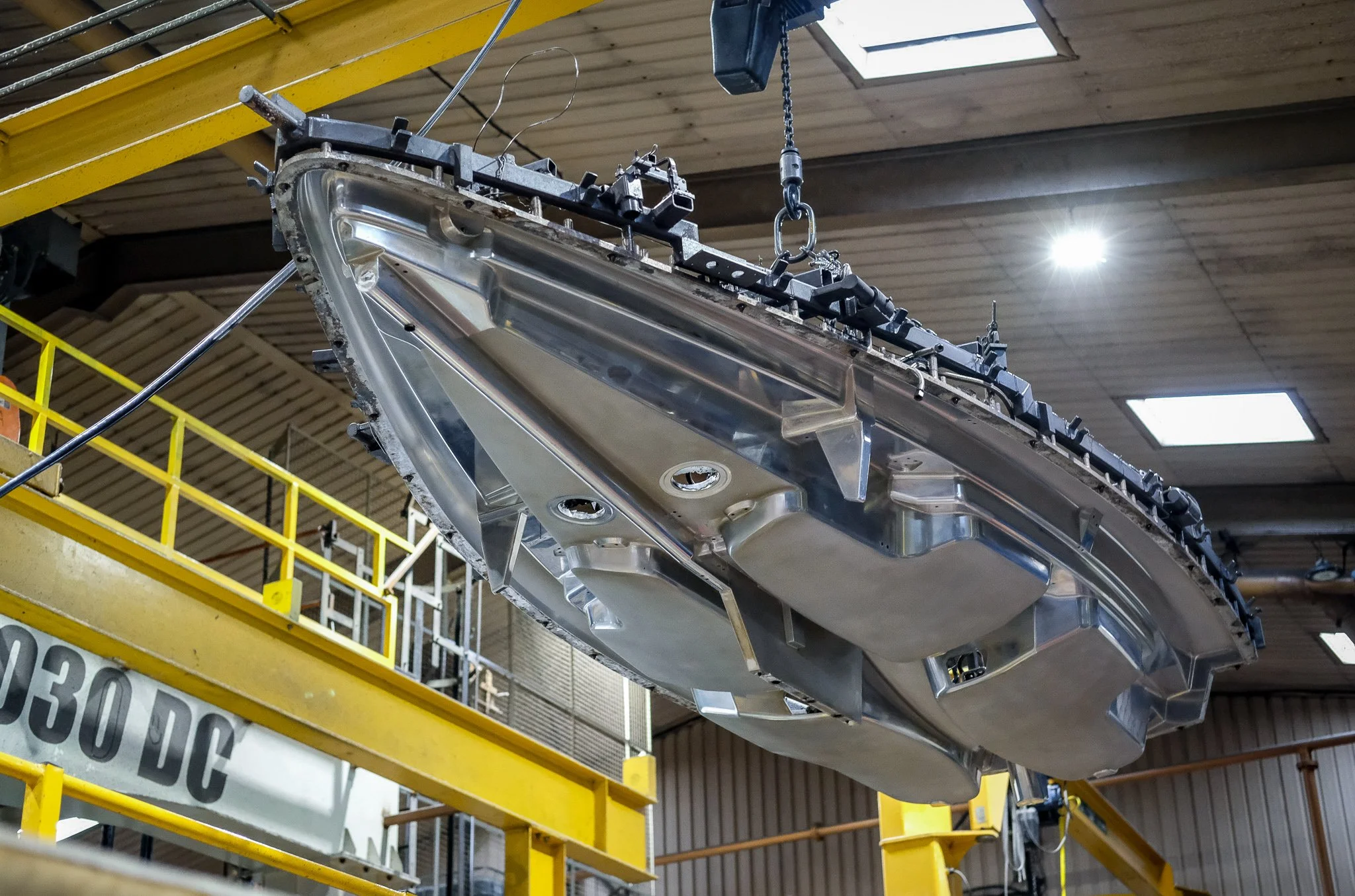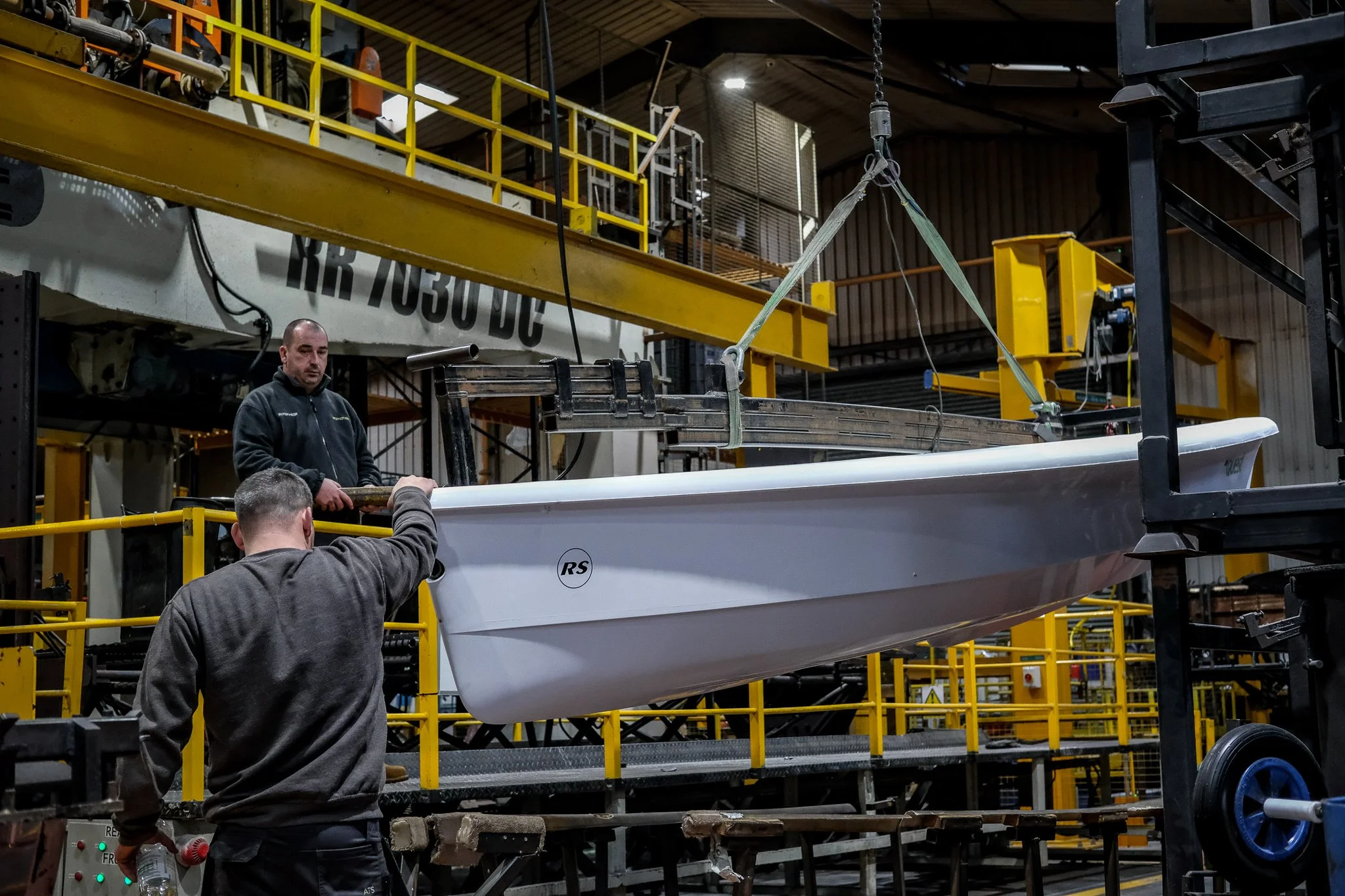Benefits of Rotational moulding for Industry and Outdoor Use
When your business needs plastic components that can withstand everything nature and heavy-duty use can throw at them, the advantages of rotational moulding (rotomoulding) are hard to beat. This manufacturing process creates strong, weather-resistant plastic products suitable for industrial and outdoor use. From storage tanks holding thousands of litres to safety barriers or agricultural containers, rotational moulding delivers the reliability and performance industrial applications need.
How Rotomoulding Works
Rotational moulding is a specialist plastic manufacturing process used to produce large, seamless, hollow parts. It’s particularly well-suited to creating high-performance plastic components that can cope with the demands of industrial and outdoor environments.
The rotomoulding process
Instead of forcing molten plastic into a mould under high pressure like injection moulding, or inflating it like blow moulding, rotational moulding uses heat and bi-axial rotation to distribute a powdered polymer (typically polyethylene) evenly inside a mould. The mould rotates slowly around two axes while being heated electrically or in a gas oven, allowing the powder to gradually melt and coat the entire internal surface of the mould.
Once the plastic is evenly distributed, the mould is cooled, and the solidified part is removed. The result is a robust product with excellent structural integrity. The rotomoulding process naturally creates uniform wall thickness. There are no weld lines, no weak points where sections join together, and no areas of concentrated stress that could lead to premature failure. For industrial and outdoor use, the advantages of rotational moulding are plastic parts that resist cracking, warping, or leaking over time.
Material properties and design
This manufacturing process gives us remarkable design flexibility. We can create complex shapes, integrate reinforcing ribs and threaded fittings for mounting points. The rotomoulding process offers material selection options to deliver unmatched performance for industrial and outdoor applications.
Polyethylene (PE) has excellent chemical resistance and impact strength, and rotational moulding enhances this by creating uniform wall thickness (no thin spots that could fail or crack under stress). Rotomoulding’s heating and rotation process keeps the polymer intact and unstressed, making the most of the material's natural toughness. PE also doesn't absorb moisture and naturally resists UV degradation (especially with stabilisers), and when combined with the rotational moulding process, which creates one-piece hollow components with no welds or joints, it’s ideal for tanks, containers, and outdoor equipment that must remain leak-proof and weatherproof over years of use.
Polypropylene (PP) provides superior temperature resistance for components exposed to heat, and maintains structural integrity at temperatures that would soften other plastics. For permanent outdoor installations, we use UV-stabilised grades that resist degradation from constant sunlight exposure. These materials incorporate stabilising additives that prevent the polymer chains from breaking down under UV radiation.
The rotomoulding process enhances these material properties rather than compromising them. Because we're not forcing material through restrictive channels under high pressure, the polymer chains remain intact and unstressed. This means your component gets the full benefit of the material's inherent properties – chemical resistance, impact strength and temperature tolerance. The combination typically delivers 15-20+ year service in outdoor applications, far exceeding alternatives like fibreglass or metal fabrications.
This synergy of materials and the rotomoulding process is particularly valuable for water tanks, chemical storage, agricultural equipment, marine applications, and industrial containers where you need plastic parts that are built to last.
Key Advantages of Rotational Moulding for Industrial & Outdoor Use
Rotomoulded products are designed for harsh environments, demanding applications and challenging use cases.
1.Impact resistance & structural integrity
One of the main advantages of rotational moulding is product performance and resilience. Rotomoulded plastic parts are known for their resistance to impact and repeated stress, thanks to the uniform wall thickness. The absence of welds or joins eliminates weak points that plague assembled alternatives, and where other materials crack, dent, or rust, rotomoulded plastic parts stay intact. They absorb rough treatment in busy warehouses and handle harsh weather too.
In settings like construction, agriculture, and logistics, that means fewer replacements and less downtime.
2. Weather-resistance & chemical resilience
Polyethylene (PE) naturally resists a wide range of chemicals – acids, bases, solvents, fuels, fertilisers and industrial cleaning agents. PE's molecular structure naturally repels these substances, preventing degradation that would compromise other materials. The rotomoulding process preserves these inherent material properties because there's no high-pressure injection that could create stress points where chemicals might penetrate or cause cracking. This chemical resistance makes the material selection and manufacturing process ideal for storage tanks, containers, and equipment that handles aggressive substances.
Weather resistance comes from the same material advantages. Industrial plastic products need to stand up to the elements and PE and PP naturally resist UV degradation (especially with stabilising additives), don’t absorb moisture, and maintain flexibility across extreme temperature ranges.
Rotomoulded products maintain their properties through freeze-thaw cycles that would crack brittle materials, while resisting the chemical attack that corrodes metal alternatives (invaluable for marine and coastal applications). If you’re designing for year-round exposure or high-contact environments, the advantage of rotational moulding paired with PE or PP is that it delivers the longevity and reliability you need. Rotomoulded plastic parts won’t corrode, swell, degrade, or become brittle in harsh conditions.
3. Cost-effective design
Compared to metal fabrication or other plastic moulding processes, rotomoulding offers savings in tooling and production, particularly for larger parts. The rotational moulds are typically made from aluminium or a lighter steel (compared to injection moulding), and the moulds are relatively affordable, making the process cost-effective even for small- to medium-volume production runs.
The ability to create complex shapes in a single operation also eliminates expensive assembly processes. We also offer the option to deliver your complete parts ready for distribution. Material efficiency is excellent too – there's minimal waste in the rotational moulding process, and any excess material can often be recycled.
Why Rotomoulding Works for Industrial Buyers
Whether you’re designing a new product or improving an existing one, rotational moulding offers real-world performance where it counts.
1.Designed to solve real problems
Every industrial buyer knows the frustration of components that fail prematurely: rusting metal, brittle plastics, or poorly finished parts that fail under pressure. From waste containers and equipment housings to water tanks and farm feeders, we’ve helped clients find more reliable, lower-maintenance solutions using rotomoulding. The impact resistance prevents damage from rough handling, and the long service life of rotomoulded plastics means better end-user satisfaction.
2. Trusted by engineers & procurement teams
Rotational moulding is trusted by engineers, designers and purchasing teams across a variety of industries because it offers predictable, long-term performance. Its repeatability, design flexibility, and low tooling investment make it a sound choice for both prototyping and full-scale production. At Rototek, we deliver an end-to-end service, finishing, packaging, and distributing custom plastic products ready for end-users.
3. A process that keeps evolving
At Rototek, we’ve invested in a state-of-the-art Persico SMART machine that gives us better control over every step of the rotomoulding process. The SMART machine allows us to continue exploring the use of sustainable materials, alongside delivering more energy-efficient heating through precise temperature control and automated systems. These innovations help us continue to meet the exacting standards our industrial clients demand.
Get in Touch with Rototek
If you're evaluating manufacturing processes for plastic parts with industrial or outdoor applications where durability, weather resistance and cost-effectiveness matter, rotational moulding deserves serious consideration.
At Rototek, we work closely with engineers, product developers, and procurement teams to turn ideas into customer-ready products. We'd welcome the opportunity to discuss your specific requirements. Get in touch today to find out more about the advantages of rotational moulding and how rotomoulding could benefit your next project.



